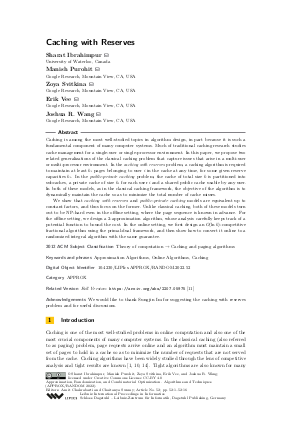LIPIcs.APPROX-RANDOM.2022.52.pdf
- Filesize: 0.7 MB
- 16 pages

 Creative Commons Attribution 4.0 International license
Creative Commons Attribution 4.0 International license















Feedback for Dagstuhl Publishing